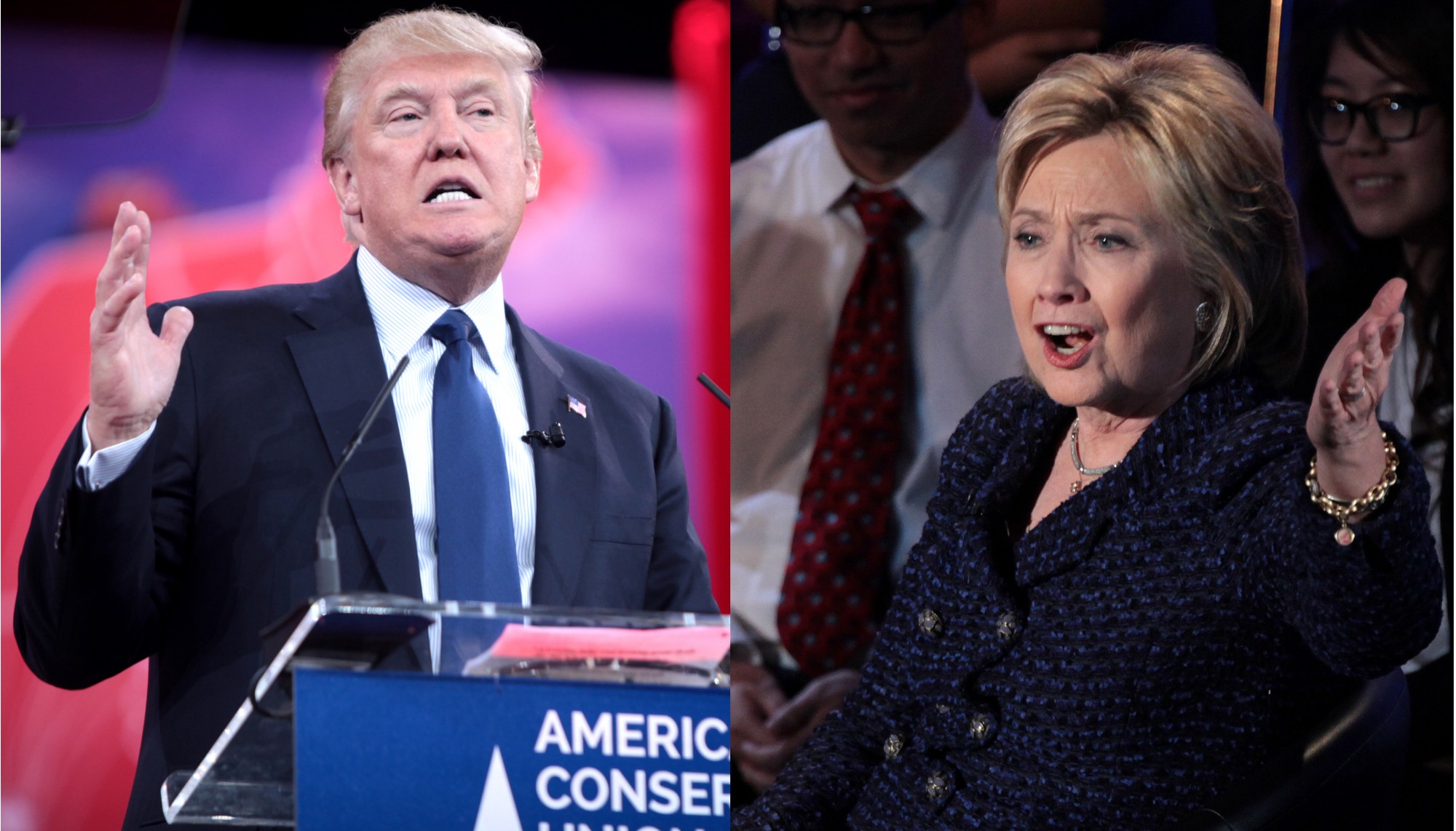By Evan Berkowitz
For The Diamondback
After the first two presidential debates, University of Maryland junior Karla Casique got so tired of the rhetoric she realized she had to watch the third one alone.
It wasn’t just the candidates’ statements that bothered her — it was the offhand comments her friends and colleagues made.
“Other people on campus or my friends … are like, ‘You know, I’m just going to go to Canada,'” she told about 25 people in Taliaferro Hall Tuesday night. “They kind of laugh off these huge things, and I’m there being like, ‘I can’t leave. I can’t go anywhere.'”
The journalism major said she doesn’t have the luxury of ignoring these topics because she’s not a U.S. citizen. She can’t vote in the upcoming election, and her status in the country could vary greatly based on its outcome.
During the event, titled “From the Border Wall to the Voting Booth: Immigration and the 2016 Election.”
Casique was joined by Alberto Fernández of labor organization Working America, Howard University political science professor Mervat Hatem and Sarah Pierce of the Washington, D.C. think tank Migration Policy Institute. Professor Nancy Mirabal, director of the U.S. Latina/o Studies Program, moderated the event.
Casique said she wanted to “give a face to the statistic of undocumented or documented students.” In 2003, she fled political turmoil in Venezuela for this country, but didn’t realize she was undocumented until high school.
College applications had her panicked until President Obama launched Deferred Action for Childhood Arrivals, an executive action that gives certain undocumented immigrants who arrived and were under age 16 before 2007 access to a renewable, two-year work permit.
Casique has to renew hers next June, “which is scary, ’cause I don’t know what’s going to happen to the state of our country,” she said.
DACA is one of many immigration-based issues at the front of Casique’s mind, and one of many discussed by the panelists. They also spoke about labor unions, corporate outsourcing and U.S. foreign policy through the lens of Hillary Clinton, Donald Trump and their party platforms.
Pierce, whose nonpartisan group dissected the two platforms to analyze trends, said “an event like this is such a relief to take a breath and look at the election from a different perspective.”
Mirabal, the moderator, agreed.
“This is a really timely and important conversation that we’re having [with] two weeks until the election,” she said.
Hatem, from Howard University, said the issues raised during the election won’t disappear Nov. 8.
“This election will be over in a couple of weeks, but the ideas are still out there,” she said, “the problems are still out there.”
The Latino vote, which Fernández’s organization hopes to energize, is a key bloc, he said.
“People are always talking about the Latino vote as the sleeping giant,” Fernández said. “But I think it has to do with the way we’re relying on existing networks … and to what extent we’re able to develop a common message and mobilize to impact the electoral process.”
Casique echoed the charge for civic engagement, especially as she hears friends and colleagues write off voting altogether.
“Voting is a huge privilege, it’s an honor to vote,” she said. “I can’t vote, I don’t have a say in what happens to me or the other 11 million undocumented immigrants or documented immigrants or their families.”
She’s heard students at this university say, “Well, I’m not even going to vote, what’s the difference?” Casique disagrees.
“Definitely push your friends and family to vote,” she said. “Because what’s happening right now is going to go down in history.”



